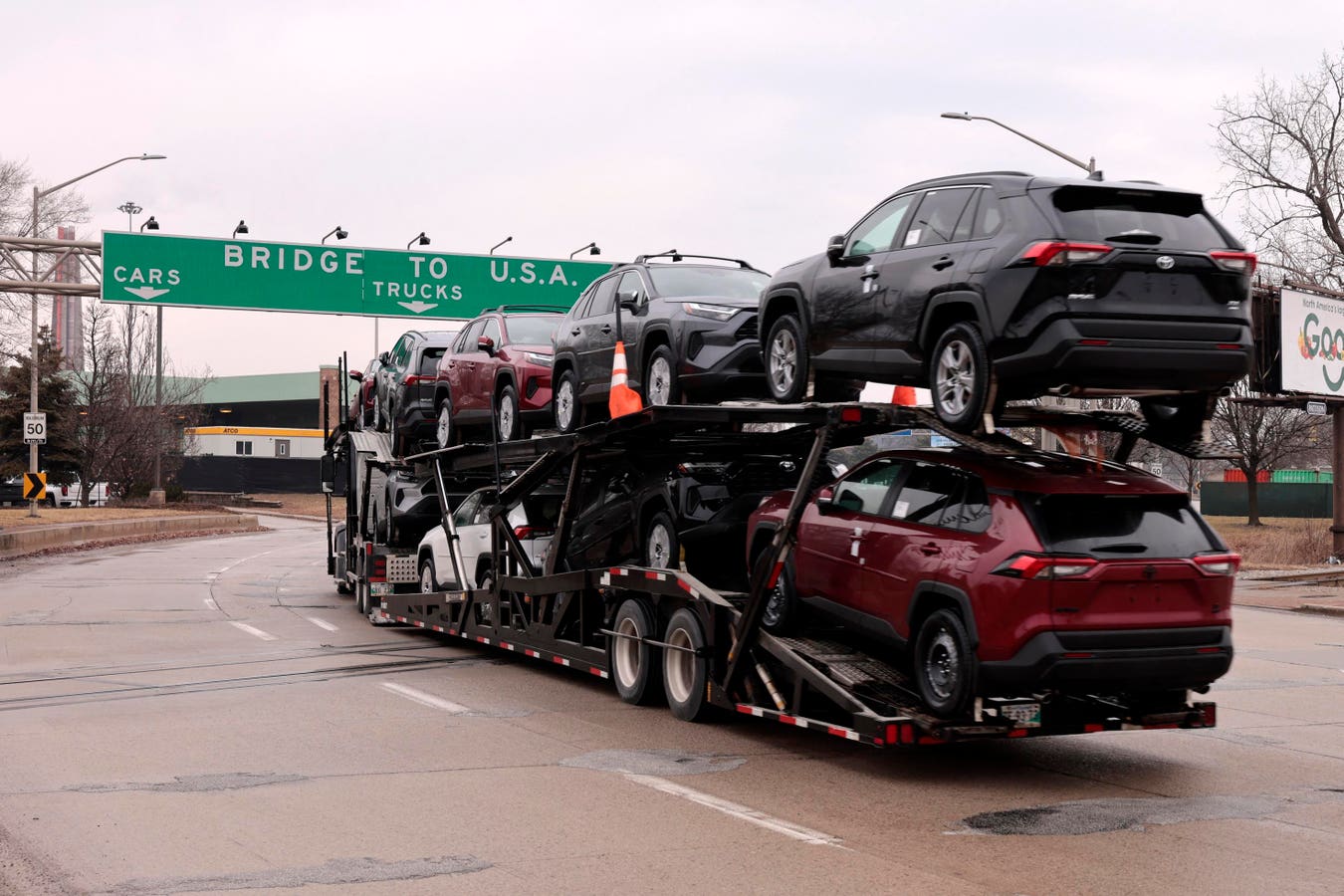A car hauler carries Toyota RAV4 vehicles as it enters to cross the Ambassador Bridge in Windsor, … More
Tariff levels on cars and trucks may ease while consumers will absorb most of the cost, consulting firm AlexPartners says in an annual report.
“This tariff wall is not going to last forever,” said Mark Wakefield, global automotive market lead at AlixPartners.
The consulting firm said tariff costs should drop by 40% from current levels to $30 billion in 2026.
Consumers will be hit with 80% of the tariff expense, Wakefield said at an online press conference. That may lead to average price increases of $1,760, he added.
Tariffs are levied on companies that import goods. Those costs are typically passed on customers. Tariffs are not payments from one country to another. The Trump administration has levied tariffs on a variety of products, saying it wants to boost U.S. manufacturing employment.
The annual AlixPartners Global Automotive Outlook presented a picture of a global automotive undergoing near constant disruption. In addition to tariffs, automakers are trying to cope with slow growth, less-than-expected deliveries of electric vehicles and a highly competitive Chinese industry.
Wakefield said the industry formerly dealt with major disruptions about once a decade. Now, he said, a “destruction cycle…happens every year or two.”
Automakers and suppliers need to embrace artificial intelligence to design and test products quicker and more efficiently, the New York-based consulting company said.
“Companies have to be more agile,” Wakefield said.
Some projections and findings in the report included:
–Global light-vehicle sales will increase just 1% this year. Sales increases in China and other regions will offset delivery declines in the U.S. and Europe. China sales will expand by 3% in 2025.
— China automakers may increase annual production in Europe by 80,000 vehicles by 2030. Those automakers may double their European market share to 10% in that time.
— European automakers may reduce their vehicle production capacity by 400,000, the equivalent of 1.5 vehicle-assembly factories.
— European companies are looking to sell off automotive operations. “Europe is definitely for sale and the buyers are not European,” said Andrew Bergbaum, global leader of the automotive and industrial practice at AlixPartners.
–AlixPartners projected EVs will account for about a 30% share of the worldwide market by 2030.









